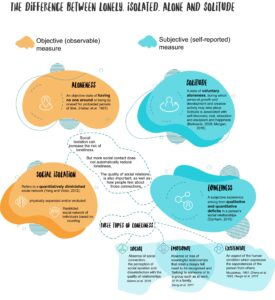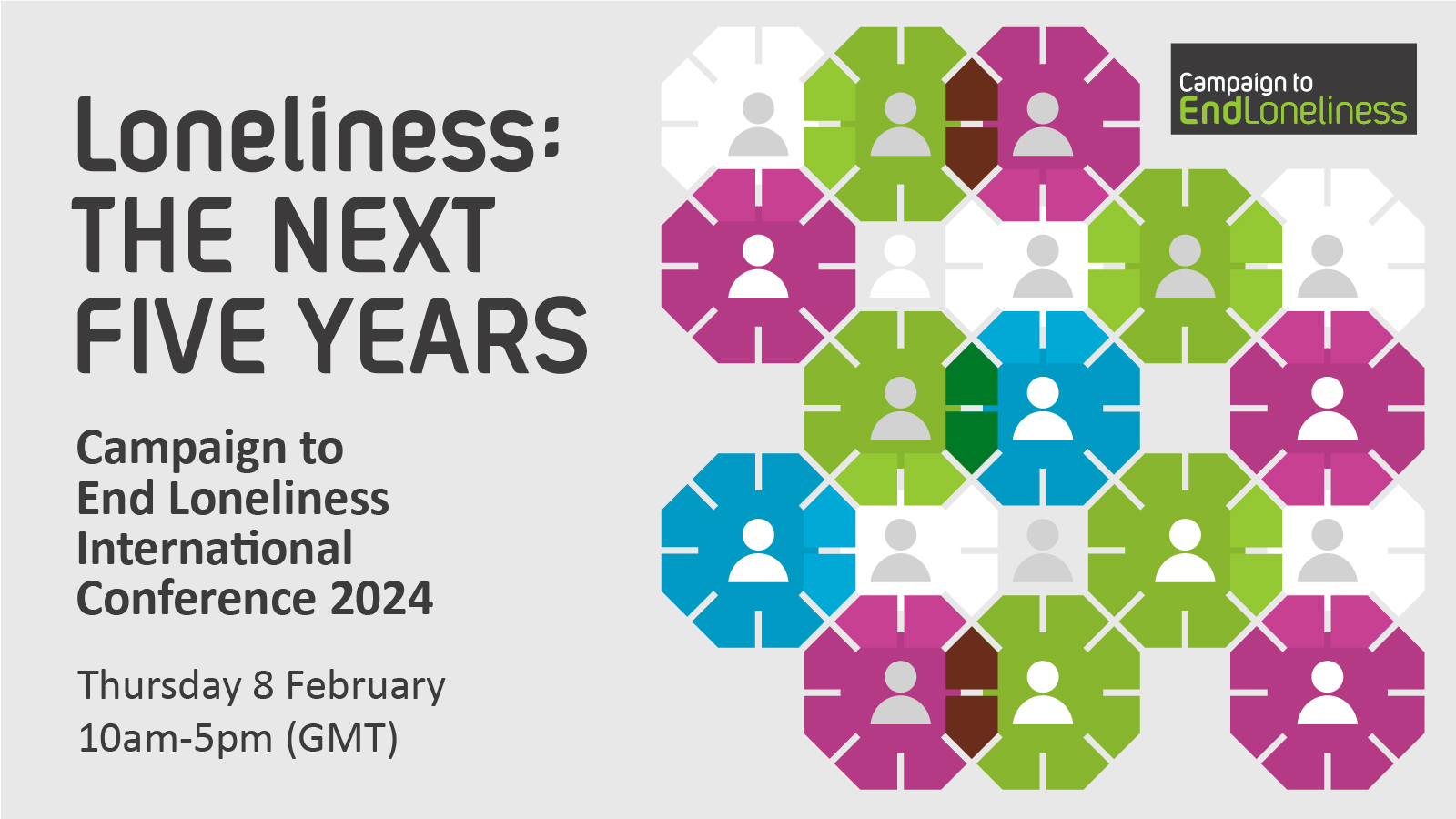[1] Campaign to End Loneliness with Dr Heather McClelland (2023) Analysis of quarterly report data provided by the ONS from the Opinions and Lifestyle Survey for Jan-Dec 2022 using a representative sample of people aged 16 and over in Great Britain. Note: an average of 2,625 participants engaged with the ONS Opinions during each wave of the Lifestyle Survey over this period.
[2] Campaign to End Loneliness, The State of Loneliness 2023: ONS Data on loneliness in Britain (2023).
[3] Department for Digital, Culture, Media & Sport, A connected society: a strategy for tackling loneliness (2018).
[4] D. Perlman and L. Peplau, ‘Toward a Social Psychology of Loneliness’ in Personal Relationships: 3. Relationships in Disorder, ed. by R. Gilmour and S. Duck (London: Academic Press), pp.31-56 (p.32).
[5] L Mansfield et al. A conceptual review of loneliness across the adult life course (16+ years): Synthesis of qualitative studies, What Works Wellbeing (2019), (p. 2; 18; 36).
[6] Hwang et al. ‘Loneliness and social isolation during the COVID-19 pandemic’, International Psychogeriatrics 32.10 (2020), pp. 1217-1220.
[7] Wu, B. ‘Social isolation and loneliness among older adults in the context of COVID-19: a global challenges’, Global Health Research and Policy 5.27 (2020).
[8] Mental Health Foundation. All the lonely people (2022), (p.11).
[9] Holt-Lunstad, J. ‘Social Connection as a Public Health Issue: The Evidence and a Systemic Framework for Prioritizing the “Social” in Social Determinants of Health’, Annual Review of Public Health 43 (2022), pp.193-213.
[10] Department for Digital, Culture, Media & Sport. Mental Health and loneliness: relationship across life stages (2022).
[11] Mind, Loneliness, (2019), (p.2).
[12] C. Goodfellow et al, ‘Loneliness and personal wellbeing in young people: Moderating effects of individual, interpersonal, and community factors’, Journal of Adolescence 94.4 (2022), pp. 554-568, (p.555).
[13] Department for Digital, Culture, Media & Sport, Tackling loneliness evidence review: executive summary (2023).
[14] K. Jopling, H. McClelland and E. Proffitt. Loneliness at work, British Red Cross (2023) (pp.7-11).
[15] J. Holt-Lunstad et al., ‘Loneliness and social isolation as risk factors for mortality: a meta-analytic review’, Perspectives on psychological science 10.2 (2015), pp. 227-237.
[16] NHS Digital, Health Survey for England, 2021, Part 2 Loneliness and wellbeing (2023).
[17] Department for Digital, Culture, Media & Sport, Investigating factors associated with loneliness in adults in England (2022).
[18] Co-Op Foundation, A Friend in Need (2022).
[19] E. G. Brown, S Gallagher and A. Creaven, ‘Loneliness and acute stress reactivity: A systematic review of psychophysiological studies’, Psychophysiology 55.5 (2018).
[20] T. Matthews et al., ‘Sleeping with one eye open: loneliness and sleep quality in young adults’, Psychological Medicine 47.12 (2017), pp. 2177-2186 (p.2182).
[21] S. C. Griffin et al., ‘Loneliness and sleep: A systematic review and meta-analysis’, Health Psychology Open 7:1 (2020).
[22] R. Jefferson, M. Barreto, L. Verity and P. Qualter, ‘Loneliness During the School Years: How It Affects Learning and How Schools Can Help’, Journal of School Health 93.5 (2023), pp.428-435.
[23] S. Peytrignet, S. Garforth-Bles and K. Koehane, Loneliness monetisation report: Analysis for the Department for Digital, Culture, Media & Sport (2020) (p.1).
[24] New Economics Foundation and Co-Op Foundation, The Cost of Loneliness to UK Employers (2017) (p.v).





